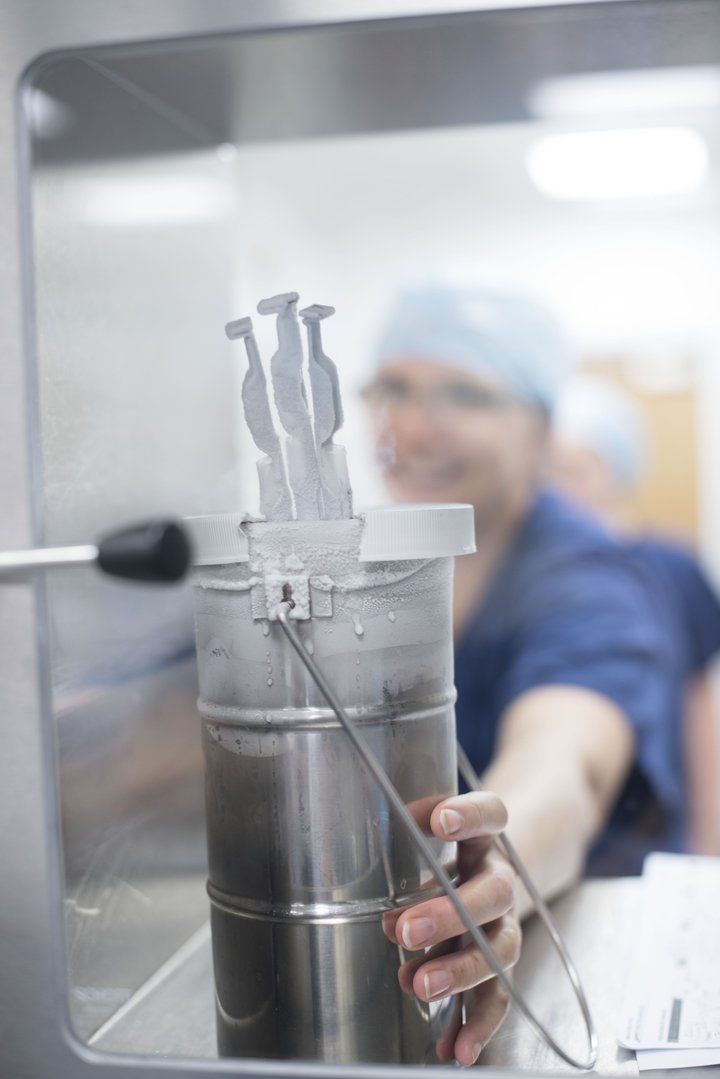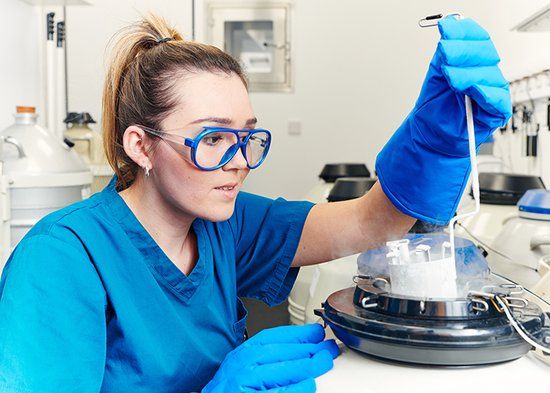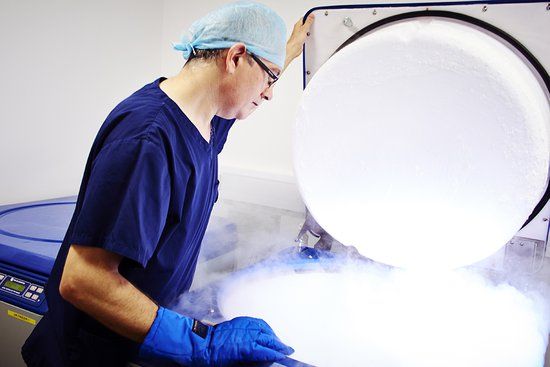
Did you know that freezing allows your sperm, eggs or embryos to be successfully used in fertility treatment years from now? Sperm frozen almost 27 years ago recently resulted in the birth of twins, a world record for the oldest sperm ever used in successful IVF.
Freezing is done for many different reasons. The standard storage period for freezing eggs, embryos or sperm is usually 10 years according to the HFEA, but in certain circumstances this can be extended to up to 55 years.
At Manchester Fertility we’re highly experienced in cryopreservation. We use the most advanced freezing techniques and equipment in our state-of-the-art lab, which has a fully secured back-up and alarm system with our team on call 24/7 to safeguard your eggs, embryos and sperm.
Here’s your guide to what happens when you opt to freeze with us:
Embryo freezing
If your IVF cycle results in more than one good embryo, we can store the remainder so you can use them in future, without having to start a new IVF or ICSI cycle.
Embryos are safely preserved at extremely low temperatures in liquid nitrogen, which means they can be stored for many years and still be viable for use.
If you decide to use them in a future IVF cycle, you’ll undergo frozen embryo transfer, which involves thawing and transferring the best embryo for the highest chance of pregnancy.
Egg freezing
Lots of women choose to freeze their eggs for social reasons, as a way to try for a family later in life. Egg freezing is also used by women prior to medical treatment which can affect their fertility, and by transgender patients about to undergo a sex-change.
Egg freezing involves stimulating your ovaries to produce mature eggs, just like in an IVF cycle, which are then gently collected and frozen by our laboratory team using vitrification, a special fast-freezing method which ensures high survival rates for frozen eggs.
When you want to thaw your eggs and try for a baby, there are lots of different factors that can influence success, especially your age at the time your eggs were frozen. Egg quality decreases with age, so the younger you are when your eggs are stored, the better. We’ll always be transparent about your future pregnancy chances and advise if egg freezing is right for you.
Sperm freezing
Sperm freezing enables men to preserve their fertility. It’s often done because of upcoming medical treatment, if it may affect sperm production and quality. But it’s also done by transgender patients in advance of a sex-change, men having vasectomy in case they wish to have future children or by men in the armed forces who are at risk of injury.
Sperm freezing is a simple process. You’ll have health screening and provide us with samples of your sperm, which will be preserved in liquid nitrogen.
When you’re ready to try for a family, a sample of your sperm will be thawed and assessed to make sure it’s viable for use in fertility treatment such as IVF or ICSI.
Consent and keeping up to date
You - and your partner - will need to complete consent forms, which give us your permission to freeze and store your eggs, embryos and sperm. The forms also tell us vital information such as:
- How long you want to store your eggs, embryos or sperm
- What should happen to your eggs, embryos or sperm if something happens to you
It’s also essential that you keep in touch and inform us of any change in contact details or address during the years your eggs, embryos or sperm are in storage with us. You may also be offered counselling to discuss the implications of freezing.
Find out more about egg, embryo or sperm freezing
Talk to our friendly Patient Advisors on 0161 300 2737 for more information on cryopreservation or book in for a private and free 1-2-1.
Last updated: 20th January 2020




